 NEW YORK, NY – Mercer International announced that its subsidiary, Mercer Peace River Pulp (MPR), and Svante Technologies (Svante) have commenced operation of a previously announced carbon dioxide (CO₂) capture demonstration unit at the Mercer Peace River pulp mill in northern Alberta. The pilot project is designed to evaluate Svante’s solid sorbent carbon capture technology on biogenic CO₂ emissions from the mill’s recovery boiler flue gas. As a cost-efficient step, this stage builds on the previously announced Front-End Engineering and Design Phase 2. …“Commissioning this demonstration unit… allows us to evaluate carbon capture performance in our operating environment and gather practical data on what would be required for any future scale-up,” said Bill Adams. “The results from this on-site demonstration will help us evaluate the decarbonization potential of this technology for biogenic emissions and inform longer-term planning across our pulp operations.”
NEW YORK, NY – Mercer International announced that its subsidiary, Mercer Peace River Pulp (MPR), and Svante Technologies (Svante) have commenced operation of a previously announced carbon dioxide (CO₂) capture demonstration unit at the Mercer Peace River pulp mill in northern Alberta. The pilot project is designed to evaluate Svante’s solid sorbent carbon capture technology on biogenic CO₂ emissions from the mill’s recovery boiler flue gas. As a cost-efficient step, this stage builds on the previously announced Front-End Engineering and Design Phase 2. …“Commissioning this demonstration unit… allows us to evaluate carbon capture performance in our operating environment and gather practical data on what would be required for any future scale-up,” said Bill Adams. “The results from this on-site demonstration will help us evaluate the decarbonization potential of this technology for biogenic emissions and inform longer-term planning across our pulp operations.”

 Welcome to the Wood Pellet Association of Canada’s Fall 2025 newsletter. We hope you enjoy reading it, and we welcome your feedback. The Headlines:
Welcome to the Wood Pellet Association of Canada’s Fall 2025 newsletter. We hope you enjoy reading it, and we welcome your feedback. The Headlines: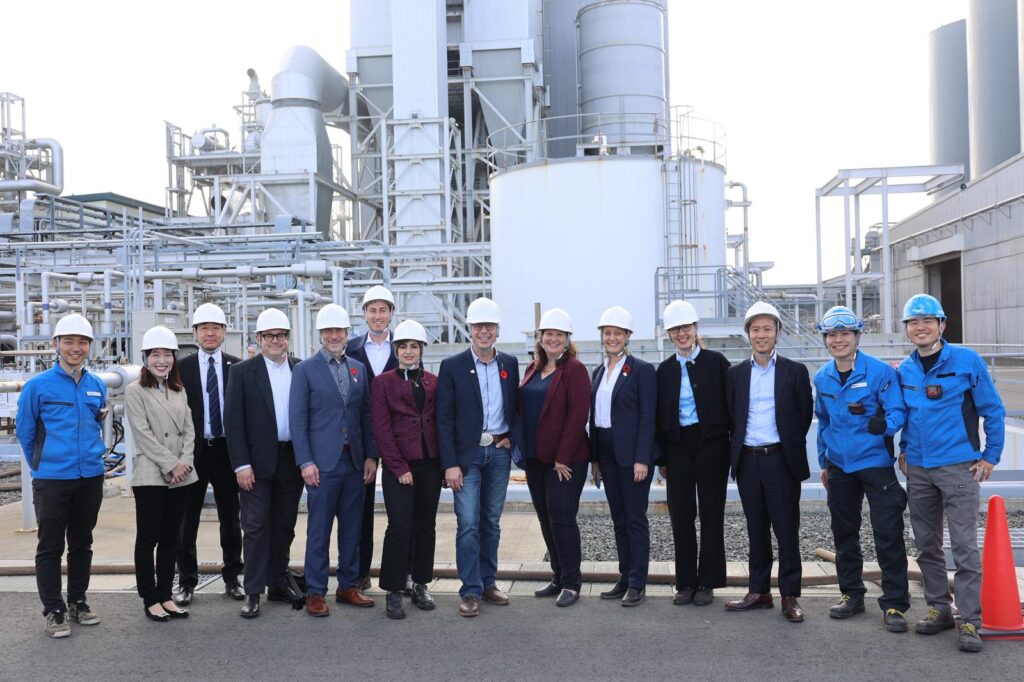
 The Arctic Energy Alliance and the Wood Pellet Association of Canada will co-host the Arctic Bioenergy Summit and Tour this January in Yellowknife—an emerging hub for northern renewable energy innovation. With the speaker roster nearly complete, Day 1 will set the tone with a deep dive into bioenergy’s role across Canada’s North, from evolving policy frameworks to community-led energy solutions. Sessions will explore regional strategies, technology developments, and bioenergy success stories, highlighting what’s working in remote and Indigenous communities and the lessons learned along the way. Speakers will also tackle supply-chain challenges, including logistics, fuel production and distribution, and the unique complexities of operating in northern climates. The program wraps up with a networking reception—an opportunity for delegates to connect, share insights, and build partnerships advancing sustainable energy in the Arctic and beyond.
The Arctic Energy Alliance and the Wood Pellet Association of Canada will co-host the Arctic Bioenergy Summit and Tour this January in Yellowknife—an emerging hub for northern renewable energy innovation. With the speaker roster nearly complete, Day 1 will set the tone with a deep dive into bioenergy’s role across Canada’s North, from evolving policy frameworks to community-led energy solutions. Sessions will explore regional strategies, technology developments, and bioenergy success stories, highlighting what’s working in remote and Indigenous communities and the lessons learned along the way. Speakers will also tackle supply-chain challenges, including logistics, fuel production and distribution, and the unique complexities of operating in northern climates. The program wraps up with a networking reception—an opportunity for delegates to connect, share insights, and build partnerships advancing sustainable energy in the Arctic and beyond. The Climate Risk Institute (CRI), in collaboration with the Canadian Institute of Forestry/Institut forestier du Canada (CIF-IFC) and with contributions from the Ontario Ministry of Natural Resources (MNR), have developed a Climate Adaptation and Resilience Professional Development Program for Forest Professionals in Canada. This course is designed to provide forestry professionals and practitioners with new knowledge of climate change, climate impacts and adaptation strategies to complement their existing knowledge base, strengthen climate resilience in forest management, and build capacity across the sector to integrate adaptation measures into daily practice. Funded in part by Natural Resources Canada through the
The Climate Risk Institute (CRI), in collaboration with the Canadian Institute of Forestry/Institut forestier du Canada (CIF-IFC) and with contributions from the Ontario Ministry of Natural Resources (MNR), have developed a Climate Adaptation and Resilience Professional Development Program for Forest Professionals in Canada. This course is designed to provide forestry professionals and practitioners with new knowledge of climate change, climate impacts and adaptation strategies to complement their existing knowledge base, strengthen climate resilience in forest management, and build capacity across the sector to integrate adaptation measures into daily practice. Funded in part by Natural Resources Canada through the  BELÉM, Brazil
BELÉM, Brazil
 Canada’s latest federal budget has earmarked tens of billion dollars over the next decade to kick-start the country’s clean economy. But according to a national association of accountants, it has failed to adopt national climate disclosure standards to transparently assess what will work. The latest federal budget lays out federal government spending through a new Climate Competitiveness Strategy. It earmarks a rolling $2 billion toward a Critical Minerals Sovereign Fund and $6 billion for a Build Communities Stronger Fund (over 10 years) to build and retrofit local infrastructure and clean energy projects. …It also seeks to create and expand investment tax credits for clean electricity, technology and critical minerals. …But on Tuesday, Chartered Professional Accountants Canada CEO Pamela Steer warned the lack of consistent and verifiable financial disclosure measures means there’s no reliable way to understand how government spending truly reduces emissions.
Canada’s latest federal budget has earmarked tens of billion dollars over the next decade to kick-start the country’s clean economy. But according to a national association of accountants, it has failed to adopt national climate disclosure standards to transparently assess what will work. The latest federal budget lays out federal government spending through a new Climate Competitiveness Strategy. It earmarks a rolling $2 billion toward a Critical Minerals Sovereign Fund and $6 billion for a Build Communities Stronger Fund (over 10 years) to build and retrofit local infrastructure and clean energy projects. …It also seeks to create and expand investment tax credits for clean electricity, technology and critical minerals. …But on Tuesday, Chartered Professional Accountants Canada CEO Pamela Steer warned the lack of consistent and verifiable financial disclosure measures means there’s no reliable way to understand how government spending truly reduces emissions. Greenwashing experts are cautiously optimistic that Ottawa’s plan to roll back nearly half of Canada’s anti-greenwashing rules does not represent a wholesale abandonment of federal efforts to curb climate disinformation following comments by Finance Minister François-Philippe Champagne. …Champagne did not elaborate on what could be included in the standard. A Department of Finance official told Canada’s National Observer in a statement that the “provisions are creating investment uncertainty and having the opposite of the desired effect with some parties slowing or reversing efforts to protect the environment.” …Announced this month in the 2026 budget, the changes ditched a requirement that companies prove their green claims using international, though unspecified, standards. The changes also prevent third parties from filing a greenwashing complaint with the Competition Bureau. …The budget claims the provisions were “creating investment uncertainty and having the opposite of the desired effect with some parties slowing or reversing efforts to protect the environment.” [A National Observer subscription may be required for story access]
Greenwashing experts are cautiously optimistic that Ottawa’s plan to roll back nearly half of Canada’s anti-greenwashing rules does not represent a wholesale abandonment of federal efforts to curb climate disinformation following comments by Finance Minister François-Philippe Champagne. …Champagne did not elaborate on what could be included in the standard. A Department of Finance official told Canada’s National Observer in a statement that the “provisions are creating investment uncertainty and having the opposite of the desired effect with some parties slowing or reversing efforts to protect the environment.” …Announced this month in the 2026 budget, the changes ditched a requirement that companies prove their green claims using international, though unspecified, standards. The changes also prevent third parties from filing a greenwashing complaint with the Competition Bureau. …The budget claims the provisions were “creating investment uncertainty and having the opposite of the desired effect with some parties slowing or reversing efforts to protect the environment.” [A National Observer subscription may be required for story access] Pulp and paper mills sit at the intersection of several decarbonization pressures. …This makes them tempting targets for hydrogen developers who are trying to find new markets… In Prince George the firm Teralta attempted what was possibly the only hydrogen-for-energy scheme in British Columbia with a chance of working. Their idea was to capture hydrogen produced as a by-product by the nearby chemical plant Chemtrade (from its sodium-chlorate process), purify and pipe it about 500 metres to a nearby pulp mill owned by Canfor. …The
Pulp and paper mills sit at the intersection of several decarbonization pressures. …This makes them tempting targets for hydrogen developers who are trying to find new markets… In Prince George the firm Teralta attempted what was possibly the only hydrogen-for-energy scheme in British Columbia with a chance of working. Their idea was to capture hydrogen produced as a by-product by the nearby chemical plant Chemtrade (from its sodium-chlorate process), purify and pipe it about 500 metres to a nearby pulp mill owned by Canfor. …The  The Province has released the 2025 Climate Change Accountability Report, reaffirming its commitment to climate action and affordability while highlighting progress in cutting emissions and advancing clean energy throughout B.C. The report shows that CleanBC is working. British Columbia is making progress in many areas… In spring 2025, the 2024 Climate Change Accountability Report indicated that B.C. was not on track to meet its 2030 emissions targets. The recently released CleanBC review provides independent advice to strengthen the climate plan and keep delivering results. Government is reviewing the recommendations to guide the next phase of action, with a focus on expanding clean energy, supporting cleaner industry and making low-carbon choices more accessible for people and communities.
The Province has released the 2025 Climate Change Accountability Report, reaffirming its commitment to climate action and affordability while highlighting progress in cutting emissions and advancing clean energy throughout B.C. The report shows that CleanBC is working. British Columbia is making progress in many areas… In spring 2025, the 2024 Climate Change Accountability Report indicated that B.C. was not on track to meet its 2030 emissions targets. The recently released CleanBC review provides independent advice to strengthen the climate plan and keep delivering results. Government is reviewing the recommendations to guide the next phase of action, with a focus on expanding clean energy, supporting cleaner industry and making low-carbon choices more accessible for people and communities.
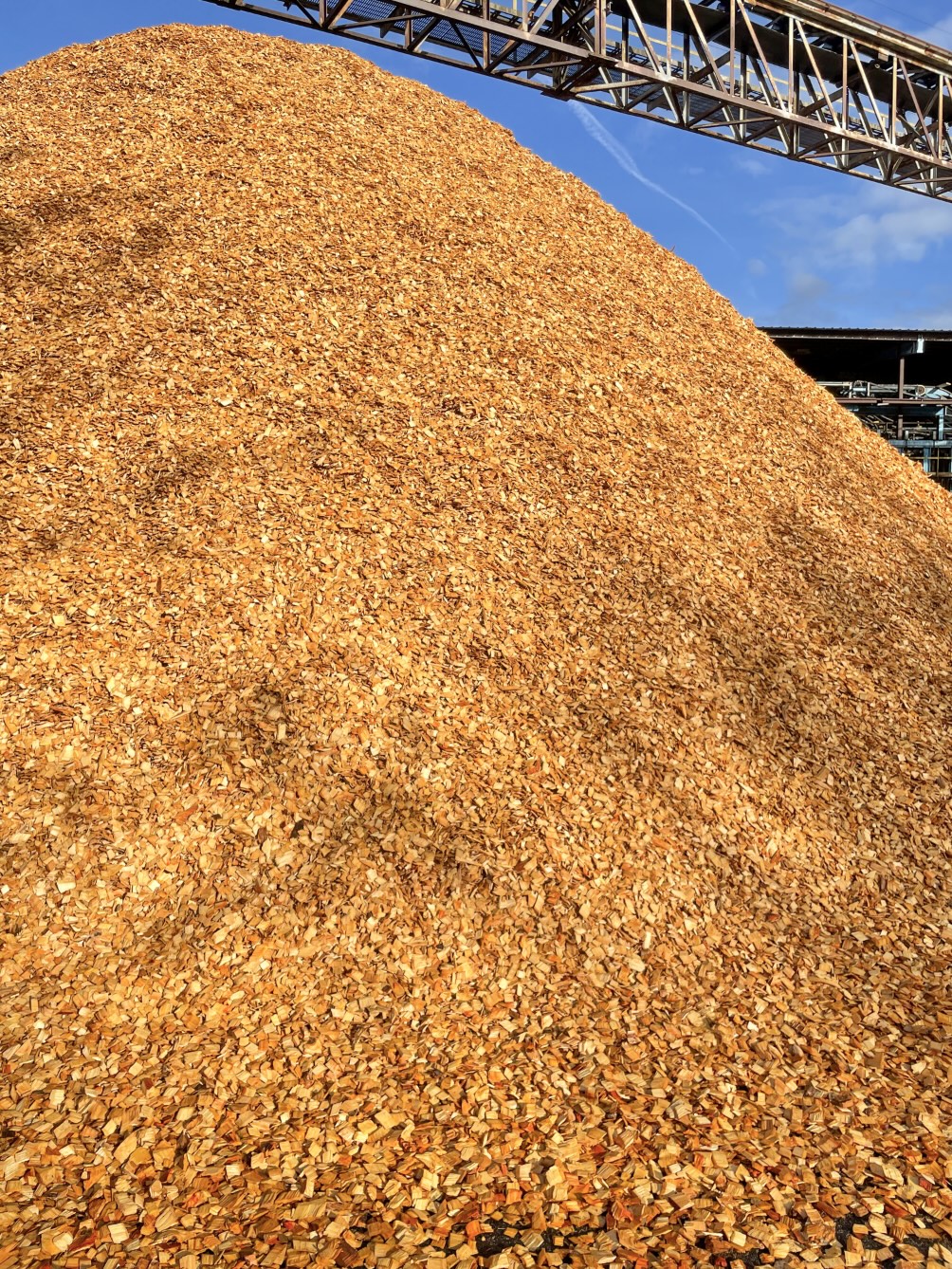 Federal funding of nearly $460,000 will enable Bingwi Neyaashi Anishinaabek to move forward with the installation of a district biomass heating system in the community. The project is one of 10 being supported with $4.8 million from FedNor’s Northern Ontario Development Program, announced Dec. 5. Bingwi Neyaashi Anishinaabek — also known as Sand Point First Nation — has been
Federal funding of nearly $460,000 will enable Bingwi Neyaashi Anishinaabek to move forward with the installation of a district biomass heating system in the community. The project is one of 10 being supported with $4.8 million from FedNor’s Northern Ontario Development Program, announced Dec. 5. Bingwi Neyaashi Anishinaabek — also known as Sand Point First Nation — has been  TORONTO — Environmental experts are calling out the City of Toronto for not including a what they say is a key climate tool in its five-year climate action plan. The Toronto Environmental Alliance is highlighting the lack of building emission performance standards (BEPS) in the plan. BEPS are regulations that set emission limits for new and existing buildings. How-Sen Chong, TEA’s climate campaigner, such standards are one of the most significant policy tools as they would help the city cut emissions more efficiently. …Bryan Purcell, at the Atmospheric Fund, said, “Buildings are the largest source of GHG emissions in Toronto, accounting for over half of the emissions,” he said. “Reducing emissions from buildings is absolutely key to reaching the city’s climate targets.” …Chong “we’re hoping city council recognizes how important this is because so much of the city’s emissions are coming from the building sector,” he said.
TORONTO — Environmental experts are calling out the City of Toronto for not including a what they say is a key climate tool in its five-year climate action plan. The Toronto Environmental Alliance is highlighting the lack of building emission performance standards (BEPS) in the plan. BEPS are regulations that set emission limits for new and existing buildings. How-Sen Chong, TEA’s climate campaigner, such standards are one of the most significant policy tools as they would help the city cut emissions more efficiently. …Bryan Purcell, at the Atmospheric Fund, said, “Buildings are the largest source of GHG emissions in Toronto, accounting for over half of the emissions,” he said. “Reducing emissions from buildings is absolutely key to reaching the city’s climate targets.” …Chong “we’re hoping city council recognizes how important this is because so much of the city’s emissions are coming from the building sector,” he said.
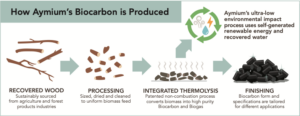 Weyerhaeuser, America’s largest private landowner, said it has launched a venture to turn runty trees and sawdust from its fleet of mills into a replacement for metallurgical coal used in steel making. The forest-products company said it expects production to begin in 2027 at a facility being built next to its sawmill in McComb, Mississippi—the first of several biocarbon plants planned by Weyerhaeuser and partner Aymium. It is the latest effort to find a market for the trees too small or otherwise unsuitable for making lumber. Such wood has typically been sent to pulp and paper mills, but U.S. wood-pulp consumption capacity has plunged due to waning paper demand. …Stockfish said he envisions the venture with Aymium operating as many as 10 or 11 biocarbon production facilities across Weyerhaeuser’s U.S. properties. …Aymium CEO James Mennell said the company’s process works with all species of wood as well as agricultural residues. [to access the full story a WSJ subscription is required]
Weyerhaeuser, America’s largest private landowner, said it has launched a venture to turn runty trees and sawdust from its fleet of mills into a replacement for metallurgical coal used in steel making. The forest-products company said it expects production to begin in 2027 at a facility being built next to its sawmill in McComb, Mississippi—the first of several biocarbon plants planned by Weyerhaeuser and partner Aymium. It is the latest effort to find a market for the trees too small or otherwise unsuitable for making lumber. Such wood has typically been sent to pulp and paper mills, but U.S. wood-pulp consumption capacity has plunged due to waning paper demand. …Stockfish said he envisions the venture with Aymium operating as many as 10 or 11 biocarbon production facilities across Weyerhaeuser’s U.S. properties. …Aymium CEO James Mennell said the company’s process works with all species of wood as well as agricultural residues. [to access the full story a WSJ subscription is required]
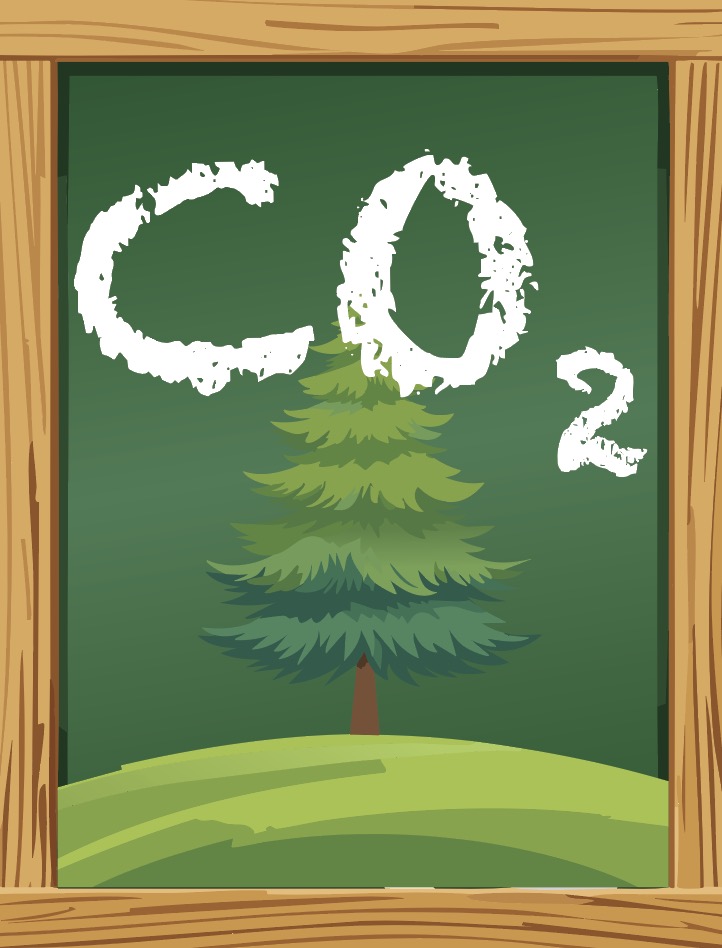 The Family Forest Carbon Program pays landowners not to timber their trees, then sells the additional growth as carbon credits. But critics question whether it leads to overall emissions reductions. David Funk has spent decades working to restore the native forest ecosystems of southeast Ohio. Now, he’s finally getting paid for it—through a carbon credit program. “The Nature Conservancy reached out and knew that I was very active in the preservation of woodlands in southeastern Ohio,” Funk said. “It was just a perfect fit for what we do.” That’s why Funk was eager to become the first Ohio member of the Family Forest Carbon Program. An initiative of the American Forest Foundation and the Nature Conservancy, the FFCP pays private landowners not to timber the forests on their properties for 20 years. It also provides free consultations with forest managers to facilitate whatever goals landowners may have for their woods—hunting, hiking, even sustainable harvesting.
The Family Forest Carbon Program pays landowners not to timber their trees, then sells the additional growth as carbon credits. But critics question whether it leads to overall emissions reductions. David Funk has spent decades working to restore the native forest ecosystems of southeast Ohio. Now, he’s finally getting paid for it—through a carbon credit program. “The Nature Conservancy reached out and knew that I was very active in the preservation of woodlands in southeastern Ohio,” Funk said. “It was just a perfect fit for what we do.” That’s why Funk was eager to become the first Ohio member of the Family Forest Carbon Program. An initiative of the American Forest Foundation and the Nature Conservancy, the FFCP pays private landowners not to timber the forests on their properties for 20 years. It also provides free consultations with forest managers to facilitate whatever goals landowners may have for their woods—hunting, hiking, even sustainable harvesting.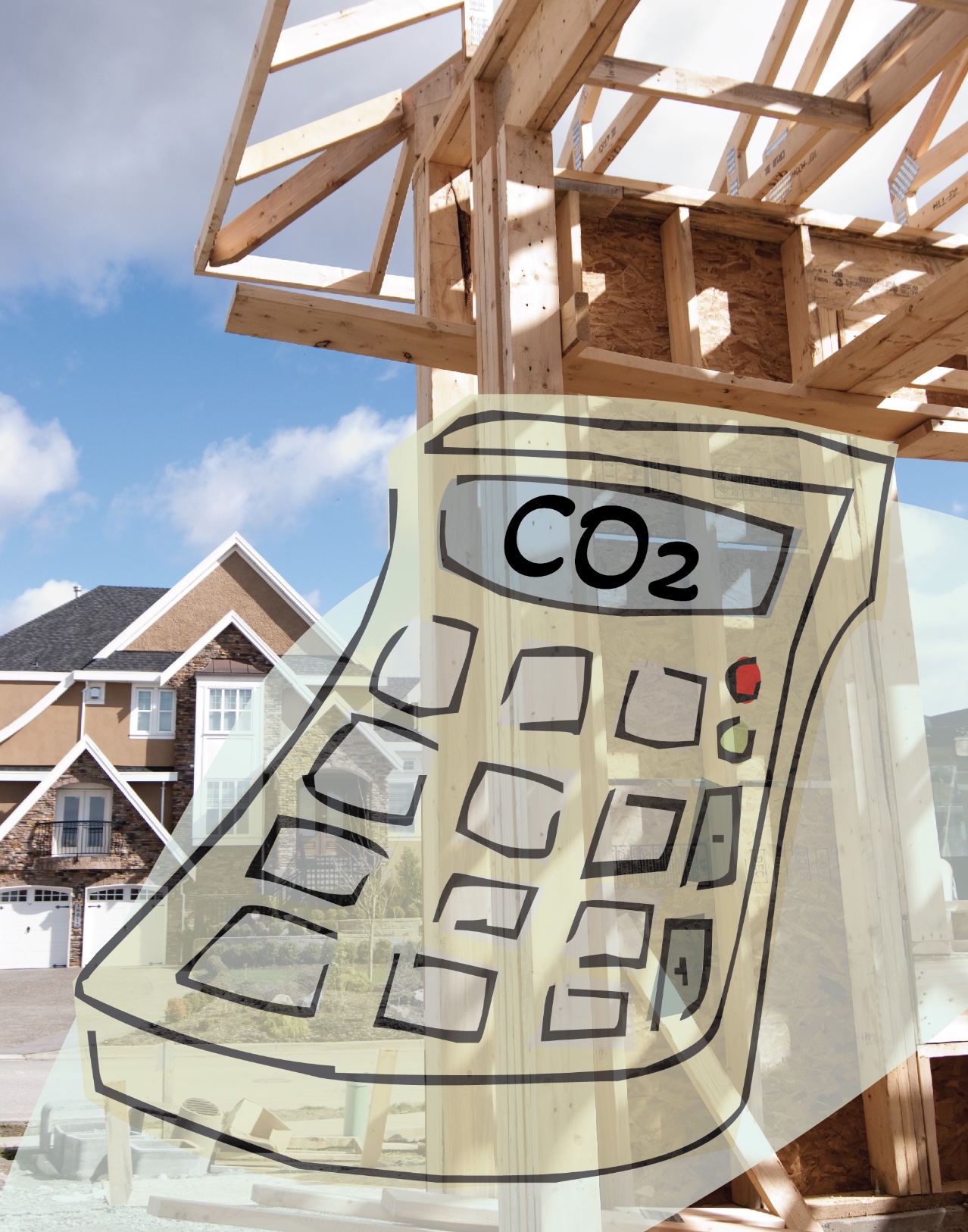 Domtar Corp. and Eastman Chemical Co. said they will continue to record and report climate-warming emissions even with the Environmental Protection Agency’s move to end a reporting program for them. The EPA’s Greenhouse Gas Reporting Program, which went into effect in 2010, requires about 8,000 facilities to annually report their greenhouse gas emissions. That includes chemical plants and pulp and paper manufacturing facilities like Eastman and Domtar’s Kingsport locations. …Domtar said in a statement to Six Rivers Media that it plans to continue reporting greenhouse gas data and reducing those emissions are part of the company’s objectives. “Many of our customers and stakeholders are concerned about climate issues, and carbon footprints are increasingly being considered in purchasing decisions,” said Jan Martin, Domtar’s director of U.S. Public Affairs. …Other industry trade groups have shared their own concerns over the end of the program, saying it could complicate their processes or add new costs.
Domtar Corp. and Eastman Chemical Co. said they will continue to record and report climate-warming emissions even with the Environmental Protection Agency’s move to end a reporting program for them. The EPA’s Greenhouse Gas Reporting Program, which went into effect in 2010, requires about 8,000 facilities to annually report their greenhouse gas emissions. That includes chemical plants and pulp and paper manufacturing facilities like Eastman and Domtar’s Kingsport locations. …Domtar said in a statement to Six Rivers Media that it plans to continue reporting greenhouse gas data and reducing those emissions are part of the company’s objectives. “Many of our customers and stakeholders are concerned about climate issues, and carbon footprints are increasingly being considered in purchasing decisions,” said Jan Martin, Domtar’s director of U.S. Public Affairs. …Other industry trade groups have shared their own concerns over the end of the program, saying it could complicate their processes or add new costs.  NEW ZEALAND — Let’s not sugar coat it: this year was a tough year for forestry in the New Zealand Emissions Trading Scheme (ETS). It’s especially frustrating as we had begun to believe the government’s promise, made just after it took power in late 2023, to “restore credibility in the ETS”. Indeed, this promise looked plausible up until quite recently. After all, the LUC restrictions, while unpopular among forestry companies and investors, had been clearly communicated long before the 2023 election. So no surprises there – except for a pleasant surprise in August, when the government announced it would not adopt the Climate Change Commission’s somewhat perplexing recommendation to reinject about 14 million of unsold auction NZUs from 2028 to 2030. The positive streak finally ended in October when the government began a staccato of policy tweaks that have cumulatively undermined confidence in the government’s commitment to climate change mitigation and, by extension, the ETS.
NEW ZEALAND — Let’s not sugar coat it: this year was a tough year for forestry in the New Zealand Emissions Trading Scheme (ETS). It’s especially frustrating as we had begun to believe the government’s promise, made just after it took power in late 2023, to “restore credibility in the ETS”. Indeed, this promise looked plausible up until quite recently. After all, the LUC restrictions, while unpopular among forestry companies and investors, had been clearly communicated long before the 2023 election. So no surprises there – except for a pleasant surprise in August, when the government announced it would not adopt the Climate Change Commission’s somewhat perplexing recommendation to reinject about 14 million of unsold auction NZUs from 2028 to 2030. The positive streak finally ended in October when the government began a staccato of policy tweaks that have cumulatively undermined confidence in the government’s commitment to climate change mitigation and, by extension, the ETS.

 Britain’s reliance on burning wood to generate electricity has reached record highs, even as the government moves to curb the controversial use of biomass power. The latest figures supplied by the owner of the giant Drax biomass plant in North Yorkshire have revealed that power generated from burning biomass wood pellets provided 9% of the UK’s electricity in July, its largest ever monthly share. Weeks later, biomass provided almost a fifth (17%) of the UK’s electricity for the first time during one morning in September when renewable energy resources were particularly low. Britain’s record reliance on biomass generation has reached new heights as the government set out its plans to dramatically reduce the controversial energy source under a new subsidy agreement with the FTSE 250 owner of the Drax power plant.
Britain’s reliance on burning wood to generate electricity has reached record highs, even as the government moves to curb the controversial use of biomass power. The latest figures supplied by the owner of the giant Drax biomass plant in North Yorkshire have revealed that power generated from burning biomass wood pellets provided 9% of the UK’s electricity in July, its largest ever monthly share. Weeks later, biomass provided almost a fifth (17%) of the UK’s electricity for the first time during one morning in September when renewable energy resources were particularly low. Britain’s record reliance on biomass generation has reached new heights as the government set out its plans to dramatically reduce the controversial energy source under a new subsidy agreement with the FTSE 250 owner of the Drax power plant.
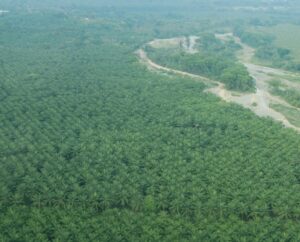 As he officially opened COP30, Brazil’s president, Lula Inacio da Silva said “the world will finally be able to say that it truly knows the reality of the Amazon”. …Last year the biggest cause of forest loss in the Amazon was fires, which were ignited to clear land for agricultural expansion or illegal mining. Despite a pledge made at COP26 in Glasgow in 2021 to halt and reverse deforestation by 2030, another 8.1 million hectares of forest were lost globally last year. Lula called for a consensus on a roadmap to deliver on the Glasgow deforestation promise. …But while more than 90 countries supported a deforestation roadmap, opposition from the likes of Saudi Arabia, Russia and India meant deforestation failed to make it to the final agreement, and COP president Andre Correa do Lago said Brazil would continue to work on developing one over the next year, to present at COP 31 in Turkey.
As he officially opened COP30, Brazil’s president, Lula Inacio da Silva said “the world will finally be able to say that it truly knows the reality of the Amazon”. …Last year the biggest cause of forest loss in the Amazon was fires, which were ignited to clear land for agricultural expansion or illegal mining. Despite a pledge made at COP26 in Glasgow in 2021 to halt and reverse deforestation by 2030, another 8.1 million hectares of forest were lost globally last year. Lula called for a consensus on a roadmap to deliver on the Glasgow deforestation promise. …But while more than 90 countries supported a deforestation roadmap, opposition from the likes of Saudi Arabia, Russia and India meant deforestation failed to make it to the final agreement, and COP president Andre Correa do Lago said Brazil would continue to work on developing one over the next year, to present at COP 31 in Turkey.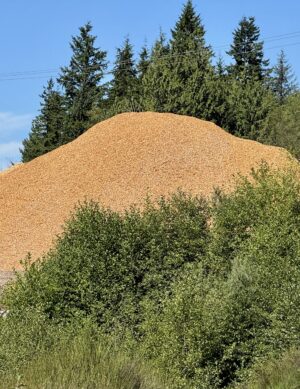 BRUSSELS — The European Commission has unveiled a new plan to end the dominance of planet-heating fossil fuels in Europe’s economy — and replace them with trees. The
BRUSSELS — The European Commission has unveiled a new plan to end the dominance of planet-heating fossil fuels in Europe’s economy — and replace them with trees. The  In response to an article published by The Guardian regarding our Canadian sustainable biomass operations, Miguel Veiga-Pestana, Drax’s Chief Sustainability Officer, wrote this response: The environmental non-profit Stand.earth fails to see the wood from the trees when it comes to the Canadian forestry industry and Drax’s limited role within it (
In response to an article published by The Guardian regarding our Canadian sustainable biomass operations, Miguel Veiga-Pestana, Drax’s Chief Sustainability Officer, wrote this response: The environmental non-profit Stand.earth fails to see the wood from the trees when it comes to the Canadian forestry industry and Drax’s limited role within it (

 A new
A new 

 While the summit launched new financial instruments and strengthened the recognition of Indigenous rights, the final binding text is conspicuously silent on the one commitment that matters most right now: a concrete, mandatory roadmap to halt deforestation. …The Brazilian Presidency pushed hard for two ambitious roadmaps: one to phase out fossil fuels and one to halt deforestation. The strategy was to link them, acknowledging the obvious: we cannot save the Amazon if the world keeps warming. …The UN Framework Convention on Climate Change process proved unable to digest the complexity of the forest–climate nexus. We have effectively moved from a consensus-based approach to a plurilateral one, where progress rests on voluntary clubs of nations rather than global law. …If the political outcome disappointed, the financial and rights-based elements provide a measure of hope: The Tropical Forests Forever Faculty—a mechanism that pays nations for standing forests as an asset class, not just for avoided deforestation.
While the summit launched new financial instruments and strengthened the recognition of Indigenous rights, the final binding text is conspicuously silent on the one commitment that matters most right now: a concrete, mandatory roadmap to halt deforestation. …The Brazilian Presidency pushed hard for two ambitious roadmaps: one to phase out fossil fuels and one to halt deforestation. The strategy was to link them, acknowledging the obvious: we cannot save the Amazon if the world keeps warming. …The UN Framework Convention on Climate Change process proved unable to digest the complexity of the forest–climate nexus. We have effectively moved from a consensus-based approach to a plurilateral one, where progress rests on voluntary clubs of nations rather than global law. …If the political outcome disappointed, the financial and rights-based elements provide a measure of hope: The Tropical Forests Forever Faculty—a mechanism that pays nations for standing forests as an asset class, not just for avoided deforestation.